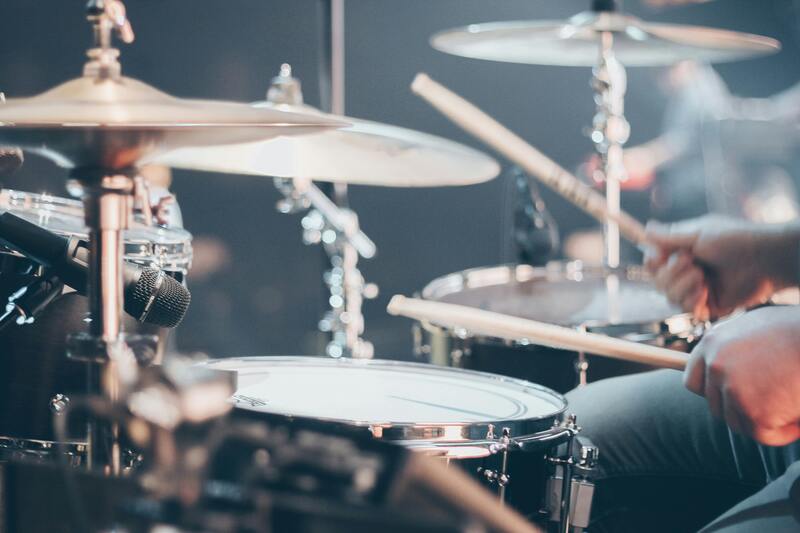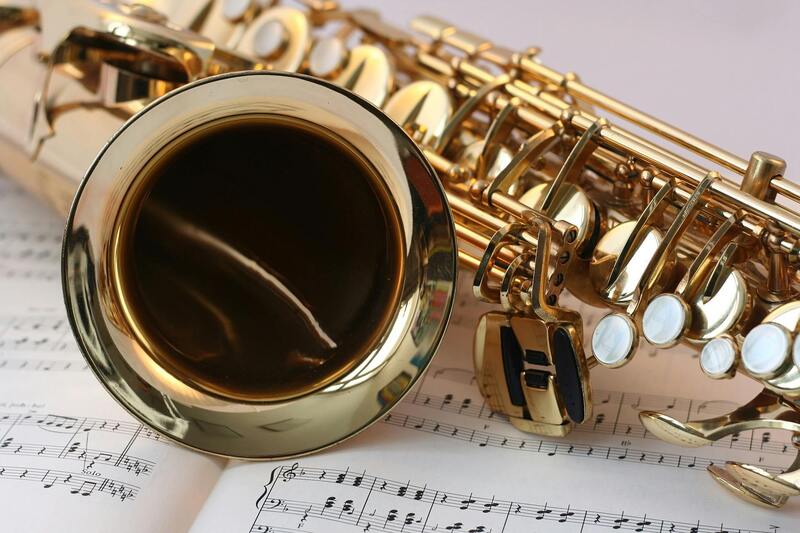A musical instrument is anything that makes sound and is used to create music. It can be something natural like your voice, or something made, such as a violin or drums.
Okay, here's a more human way to explain musical instruments:
**🧭 2. How Musical Instruments Are Grouped**
The usual way to sort instruments is by how they make sound, called the Hornbostel–Sachs system:
a. Aerophones (Air makes the sound)
Like: Flute, Trumpet, Clarinet, Saxophone, Pipe
Kinds: Wind (brass, woodwind), Reed
b. Chordophones (Strings make the sound)
Like: Guitar, Violin, Harp, Cello, Sitar
How to play: Pluck, bow, strum
c. Idiophones (The instrument itself vibrates)
Like: Xylophone, Cymbals, Maracas, Bells
Usually hit, shaken, or scraped
d. Membranophones (A stretched skin vibrates)
Like: Drums (tabla, djembe, snare), Tambourine
Played by hand or with sticks
e. Electrophones (Electronics make the sound)
Like: Synthesizers, Drum machines, Electric pianos
**🕰️ 3. A Little History**
Way Back Then: Early stuff like bone flutes, animal skin drums, and horns.
Middle Ages/Renaissance: Bowed strings, keyboard stuff (organ) showed up.
Classical Times: Orchestras got standardized, strings and wind instruments got better.
Now: Electronic instruments, combos of instruments, and computer music came about.
**🧱 4. What Instruments Are Made Of**
Strings: Gut, nylon, or metal
Keys: Black and white plastic or wood usually
Body: The part that makes the sound louder (usually wood, metal, plastic)
Valves/Slides: Change the note on wind instruments
Drumhead: The part of a drum that vibrates
Reeds: Little strips that vibrate in woodwinds
**🎶 5. How to Play**
Plucking: Strings (guitar, sitar)
Bowing: Strings (violin, cello)
Blowing: Wind (flute, trumpet)
Hitting: Percussion (drums, bells)
Keys: Keyboard, synthesizers
Sliding: Trombone, strings sometimes
Tapping: Percussion, strings now and then
**🌍 6. Instruments Around the World**
Western: Piano, Violin, Trumpet, Guitar
Eastern: Sitar, Tabla, Erhu, Shamisen
African: Djembe, Kalimba, Talking Drum
Middle Eastern: Oud, Darbuka, Ney
Latin American: Bongo, Maracas, Charango
**🛠️ 7. Instrument Materials**
Wood: Violins, guitars, flutes, drums
Metal: Trumpets, cymbals
Animal Skins: Old-school drums
Plastic: Flutes, keyboards
Gourd, Bamboo, Shells: Folk instruments
**🎤 8. Your Voice Counts!**
It's like a built-in wind instrument
Types: Soprano, Alto, Tenor, Bass
Ways to use it: Singing, humming, beatboxing
**🧽 9. Taking Care of Your Gear**
Keep it away from heat and moisture
Tune it up regularly, clean it
New strings, reeds, or drumheads when needed
Use a case
Clean mouthpieces for wind instruments
**🎓 10. Learning and Reading Music**
Sheet music is music written down
Tablature: A way to read music for guitars etc.
Learning by ear: How folk music gets passed down
Practice stuff: Metronomes, tuners, sheet music, apps.
**🧪 11. The Science Behind It**
Acoustics: How sound works (waves, overtones)
Resonance: Makes sound louder
Pitch: How high or low a note is, depends on how long, tight, or heavy the thing that vibrates is.
Loudness: How strong the sound is
**👥 12. Playing Together**
Solo: One person
Duet, Trio, Quartet: 2, 3, or 4 people
Bands: Rock, Jazz, Marching
Orchestra: Strings, brass, woodwinds, percussion
Choir: Group of singers
**🧑🎨 13. Getting Creative**
Mixing old and new instruments is popular
Computer music is blurring the lines
**🛒 14. Picking an Instrument**
Think about age, what you like, size, type of music, how loud it is, and how much it costs
Start easy: Recorder, keyboard, or ukulele
**🌐 15. Digital Instruments**
MIDI Controllers
Computer synths
Music software
Apps that act like instruments
**🧭 2. How Musical Instruments Are Grouped**
The usual way to sort instruments is by how they make sound, called the Hornbostel–Sachs system:
a. Aerophones (Air makes the sound)
Like: Flute, Trumpet, Clarinet, Saxophone, Pipe
Kinds: Wind (brass, woodwind), Reed
b. Chordophones (Strings make the sound)
Like: Guitar, Violin, Harp, Cello, Sitar
How to play: Pluck, bow, strum
c. Idiophones (The instrument itself vibrates)
Like: Xylophone, Cymbals, Maracas, Bells
Usually hit, shaken, or scraped
d. Membranophones (A stretched skin vibrates)
Like: Drums (tabla, djembe, snare), Tambourine
Played by hand or with sticks
e. Electrophones (Electronics make the sound)
Like: Synthesizers, Drum machines, Electric pianos
**🕰️ 3. A Little History**
Way Back Then: Early stuff like bone flutes, animal skin drums, and horns.
Middle Ages/Renaissance: Bowed strings, keyboard stuff (organ) showed up.
Classical Times: Orchestras got standardized, strings and wind instruments got better.
Now: Electronic instruments, combos of instruments, and computer music came about.
**🧱 4. What Instruments Are Made Of**
Strings: Gut, nylon, or metal
Keys: Black and white plastic or wood usually
Body: The part that makes the sound louder (usually wood, metal, plastic)
Valves/Slides: Change the note on wind instruments
Drumhead: The part of a drum that vibrates
Reeds: Little strips that vibrate in woodwinds
**🎶 5. How to Play**
Plucking: Strings (guitar, sitar)
Bowing: Strings (violin, cello)
Blowing: Wind (flute, trumpet)
Hitting: Percussion (drums, bells)
Keys: Keyboard, synthesizers
Sliding: Trombone, strings sometimes
Tapping: Percussion, strings now and then
**🌍 6. Instruments Around the World**
Western: Piano, Violin, Trumpet, Guitar
Eastern: Sitar, Tabla, Erhu, Shamisen
African: Djembe, Kalimba, Talking Drum
Middle Eastern: Oud, Darbuka, Ney
Latin American: Bongo, Maracas, Charango
**🛠️ 7. Instrument Materials**
Wood: Violins, guitars, flutes, drums
Metal: Trumpets, cymbals
Animal Skins: Old-school drums
Plastic: Flutes, keyboards
Gourd, Bamboo, Shells: Folk instruments
**🎤 8. Your Voice Counts!**
It's like a built-in wind instrument
Types: Soprano, Alto, Tenor, Bass
Ways to use it: Singing, humming, beatboxing
**🧽 9. Taking Care of Your Gear**
Keep it away from heat and moisture
Tune it up regularly, clean it
New strings, reeds, or drumheads when needed
Use a case
Clean mouthpieces for wind instruments
**🎓 10. Learning and Reading Music**
Sheet music is music written down
Tablature: A way to read music for guitars etc.
Learning by ear: How folk music gets passed down
Practice stuff: Metronomes, tuners, sheet music, apps.
**🧪 11. The Science Behind It**
Acoustics: How sound works (waves, overtones)
Resonance: Makes sound louder
Pitch: How high or low a note is, depends on how long, tight, or heavy the thing that vibrates is.
Loudness: How strong the sound is
**👥 12. Playing Together**
Solo: One person
Duet, Trio, Quartet: 2, 3, or 4 people
Bands: Rock, Jazz, Marching
Orchestra: Strings, brass, woodwinds, percussion
Choir: Group of singers
**🧑🎨 13. Getting Creative**
Mixing old and new instruments is popular
Computer music is blurring the lines
**🛒 14. Picking an Instrument**
Think about age, what you like, size, type of music, how loud it is, and how much it costs
Start easy: Recorder, keyboard, or ukulele
**🌐 15. Digital Instruments**
MIDI Controllers
Computer synths
Music software
Apps that act like instruments


